PANAJACHEL, Guatemala – For three days I’ve been traveling the villages of Lake Atitlan, watching the slow shift from disaster to windfall.
On Saturday, we stood together in Marvilla’s kitchen at Posada Dos Volcanes in San Lucas Toliman, one of the mostly Mayan villages that ring this lake, watching in disbelief as the mountain began shedding its skin right before our eyes. What had once been a smooth green slope was now a great brown gouge.
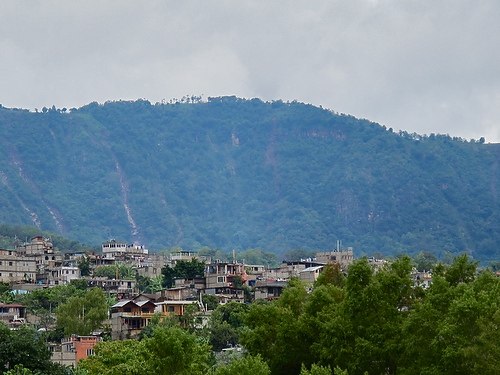
I now know the sound of a landslide. It’s like a low-flying plane, or thunder, only louder and longer. I hope never to hear it again.
“Ay, la gente,” Marvilla lamented – oh, the poor people.
Most of them were spared their lives, thanks to an evacuation order the night before. But some 400 families were without homes, and seven were confirmed dead, seven others missing – in our village alone.
It had only been a couple of days since Volcano Pacaya blew her top, raining ashes on Guatemala City, killing three and leaving hundreds homeless. Now Tropical Storm Agatha had come to carry on with a vengeance where Hurricane Stan had left off just five years ago. Bridges collapsed, roads filled with debris and homes were buried, some of them with the families still inside.
On Sunday I took the ferry to visit several towns along the lake and survey the damage. Santiago Atitlan, the charming village known for the traditional outfits embroidered with birds, was a mess. People were picking their way through ankle-deep mud in the streets – but they were alive. And it didn’t take them long to notice that while Agatha took, she also gave. All along the streets and in the harbors, people were collecting firewood for their stoves.
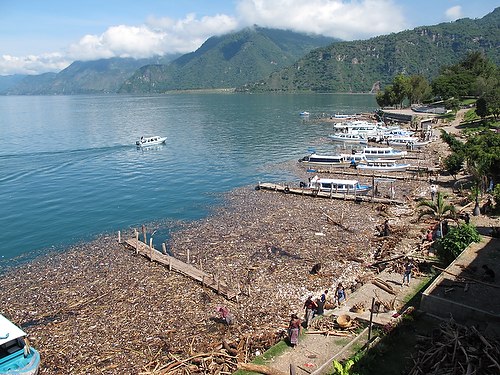

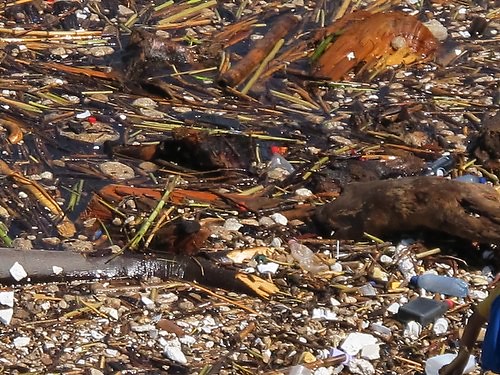
I didn’t notice it at first – but the woman sitting next to me on the ferry did. She gasped. “Leña!” she said, as we approached a mass of floating wood.
Firewood – in many ways the coveted fuel that caused the disaster in the first place, or at least the need of it. Most people in these parts still cook on wood stoves, and the gathering of firewood has become more and more difficult with the growing population and the passage of time. Now the people range far up into the hills looking for dry wood, and if they can’t find enough dead trees and branches, they begin hacking them off. Deforestation strips the soils of the cover that protects them from these very rains.
What is ensuing is a repeat of the pattern that some blame for the fall of the Mayan empire, one of the most sophisticated in history: deforestation, leading to landslides and clogged rivers, leading to drought, leading to an increasingly marginal life.
Later I passed what looked like a mud beach full of people – hundreds of them, combing the wasted land for something – firewood, I assumed, but then later I learned that a little girl had been washed away by the floodwaters and they were the search party. Bizarrely, a pair of kayakers drifted past, tourists on vacation, perhaps, accentuating the gulf between our worlds.
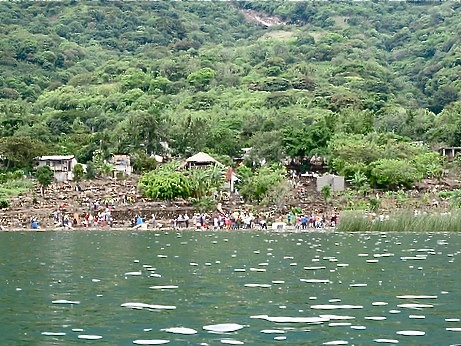
Now I’m in Panajachel, watching the sun set over the lake and chatting with Catarina, who, together with her husband Pedro, own the small and beautifully kept Hotel Sueño Real. Some of her own friends and family have been collecting firewood, too. She tells me of her mixed emotions as she watches the people scavenge for wood. All day they’ve been going past, with filled wheelbarrows, loaded up on their backs, even pickup trucks, for those who can get ahold of one.
“I look at them and their faces are so happy,” she says. “But I can’t help but think, These are pieces of people’s houses that they are taking. How can you feel happy about that?”
“I don’t know – I guess I’m just sentimental.”
What they forage today represents hours and hours of work saved in the months ahead. Who can blame them?
It’s easy for those of us who cook with gas or electric to feel sentimental. Meanwhile, the majority who don’t hae that luxury must eat.
Today I’m going out with some folks affiliated with the Mesoamerican Permaculture Institute (IMAP) to interview affected communities and people who can offer some suggestions as to how to prevent this situation in the future. Please stay tuned.
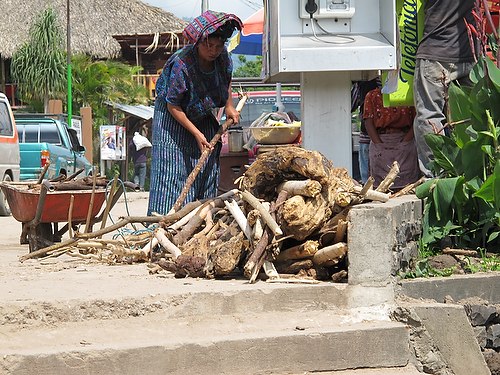
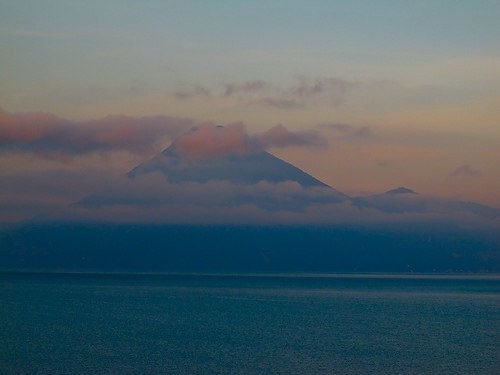
Leave a Reply